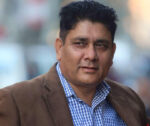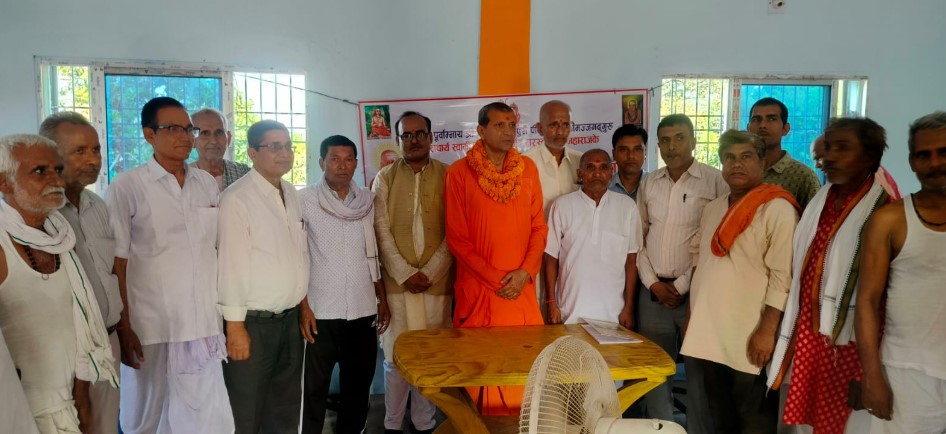Narayan Dhungana
Feb 4, Jaipur India . An international conference on community psychology has commenced here with the objective of discussing the status and challenges of community psychology in the global context. The conference is being held at a time when experts and psychologists across the world are expressing concern over the deteriorating condition of the mental health and growing social problems and crimes. Experts from various countries including Nepal, India, Sri Lanka, Ethiopia, Japan and America have been participating in the conference jointly organised by Community Psychology Association of India (CPAI), St Wilfred’s PG College, Jaipur and Sanskriti Campus. According to the community psychologists, an individual becomes healthy when the society is healthy and the nation becomes healthy when its citizens are healthy. However, mental problems have been increasing in society as society and governments are found not giving adequate attention and priority to community psychology. Even the budget set aside for this sector is very nominal compared to other sectors, they lament. The participating experts have pointed out the need of implementing the global knowledge by localizing it. CPAI general secretary Ramji Lal said the conference has been held to highlight the importance of community psychology and to discuss the related contemporary issues on the subject. Educationist Dr Neeraj K Pawan said, “If there is any conflict in society, it can be addressed through psychology. So, it is crucial to understand about social psychology.” He stressed taking psychology out of textbook and applying it in society and human behaviour. The general practice in the world at present is that clinical psychology is given priority and no country is found to have prioritized social issues. But Dr Pawan does not agree to this idea and opines that a person’s psychology could be understood only if the community psychology was comprehended. Psychology expert NK Saxena said the concept of community psychology has come so as to promote quality of life and stopping psycho-social problems through improvements in the mental health.
According to the available data, mental health issues are associated with 12 per cent of diseases across the world. The World Health Organisation’s study shows one is every four persons has mental health issue problem in the world. Some 20 percent populations in the world are living with mental illness. Study suggests that 150 million populations in India are in the need of mental health treatment. According to India’s National Mental Health Survey, among them, only 30 million people have access to medical facilities and counseling. The situation back home is also not pleasing as seven million populations, out of around 30 million, have mental health issues, though types are different. The global data is that 10-20 percent children face the mental problem. According to Nepal’s psychologist Dr Narendra Singh Thagunna, community psychology could play a meaningful role in addressing the issue. Individual, family, society and culture are primarily responsible for maintaining the sound mental health of human being and when there is a clash in between or among these factors in the absence of adjustment, the situation may lead to the negative impact on people’s mental health status. That’s why community psychology is essential to indentify root causes of mental problem and address it through locally accepted treatment methods.
He is presenting a working paper on the theme of ‘role of community and cultural psychology for the prevention of suicide in the South Asia’ today itself. Though several countries in the world are working on the area of community psychology, it is the issue of less priority in Nepal as no significant actions have been taken so far towards that end. In the changed context, the responsibility and interventions from the State level is highly realised to cope with the issue. In view of Sri Lankan psychologist Dr Sameem , the role of counseling at teaching institutions would be significant to tackle the issue. Experts from several countries who have gathered for the conference will go through discussions about 20 working papers based on vivid topics.

 नेपाली कांग्रेस(१६२)
नेपाली कांग्रेस(१६२) नेकपा एमाले(२२५)
नेकपा एमाले(२२५) माओवादी केन्द्र(१४७)
माओवादी केन्द्र(१४७) रास्वपा(२०५)
रास्वपा(२०५) राप्रपा(२८)
राप्रपा(२८) जसपा नेपाल(३५)
जसपा नेपाल(३५) नेकपा एस(८०)
नेकपा एस(८०) जनमत पार्टी(५)
जनमत पार्टी(५) नागरिक उन्मुक्ति पार्टी(२)
नागरिक उन्मुक्ति पार्टी(२) अन्य(४)
अन्य(४)




































